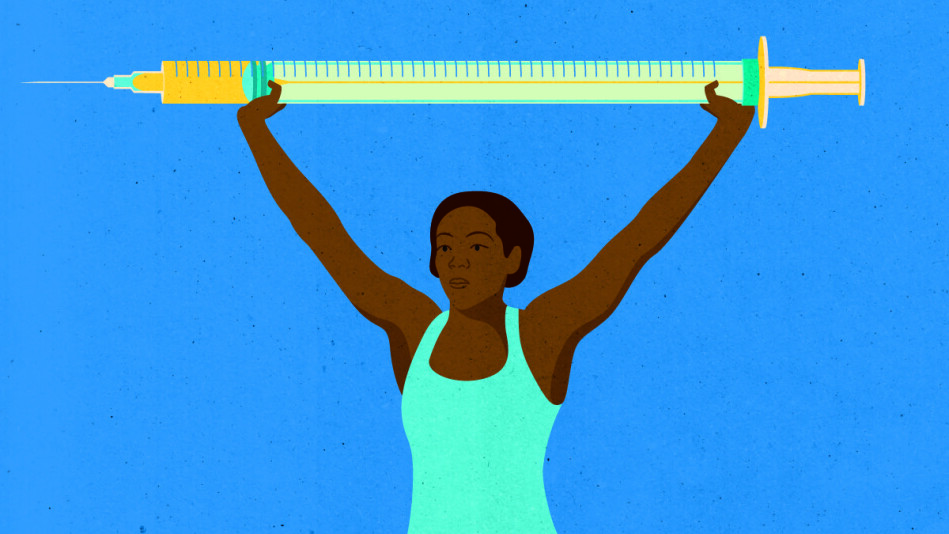How to Stop Blaming Yourself for Having Diabetes
Start praising yourself for doing these things to fight it, instead.

Photo: Kotryna Zukauskaite/Oprah Daily
It's common to respond to a Type 2 Diabetes diagnosis with guilt and even shame, believing that if you were more fit, you wouldn't have this problem. But that attitude isn't only useless—it could make things worse by causing depression, hopelessness and inertia.
The truth is, diabetes is more complicated than most of us realize. While it's true, for example, that most adults who develop diabetes are overweight, up to 15 percent of newly diagnosed patients aren't carrying any extra pounds at all. Nor will every obese person develop the condition. Plus, it turns out that your ethnic background—something you have no control over—is as significant a predictor of diabetes as weight.
People of African American, Latino, Native American, Alaskan and Hawaiian, Pacific Islander and Asian American backgrounds all have a greater chance of developing the condition. On top of that, "family genetics plays a very significant role," says Betul Hatipoglu, MD, an endocrinologist at the Cleveland Clinic.
When both parents have diabetes, your chances of developing it can be as high as 50 percent, she says. If you've been diagnosed with diabetes, the best thing you can do is to stop stressing about why you have it, and instead focus on learning the smartest ways to manage your condition going forward.
What Should I Do Now?
1. Drop a few pounds if you're carrying extra weight.
In a 2017 study published in the medical journal The Lancet, 46 percent of participants saw their disease go into total remission—which means their blood sugar readings fell into a normal nondiabetic range—after following a strict year-long diet that resulted in an approximate 33-pound weight loss.
But there's no magic number; losing even 5 to 10 percent of your weight can help lower blood sugar, as well as blood pressure and cholesterol levels. Though researchers are still figuring out why, studies indicate that the extra fat in your abdomen can promote inflammation and make cells resistant to insulin, says Robert Gabbay, MD, Chief Medical Officer at the Joslin Diabetes Center in Boston.
2. Get serious about cutting back on sugar and starch.
Your digestive system breaks carbohydrates down into glucose (i.e. sugar). This shift triggers the pancreas to produce insulin, the hormone necessary for glucose to enter our cells, where the sugar is used for energy.
When you have Type 2 Diabetes, however, your body either doesn't produce enough insulin or doesn't use it properly, so the glucose ends up accumulating in your blood. (This overabundance of glucose is why your diabetic grandma may have referred to herself as having "a touch of the sugar" or "sugar diabetes.")
A key to managing diabetes is to be judicious with carbohydrates in all forms—including high-sugar fruits like pineapple, bananas, watermelon and mangoes; starchy vegetables such as potatoes, corn and winter squash; and even whole-grain bread.
"Those things are nutritious, but they still need to be monitored on a diabetic diet," says Toby Smithson, a registered dietitian nutritionist and certified diabetes educator in Hilton Head, South Carolina.
3. Work out.
Exercise alone can't outweigh risk factors such as ethnicity and family history, but it can help your body process glucose more efficiently, lowering blood sugar readings immediately after your workout—and, if you exercise regularly, over the long-term.
However, there's no need to start training for a marathon (unless you want to!). According to American Diabetes Association recommendations, your goal should be at least 150 minutes a week of moderate to vigorous aerobic workouts, plus strength training (eight to ten exercises such as weight lifting or working with resistance bands for ten to 15 reps) two to three nonconsecutive days weekly.
4. Relax and let it go.
There's evidence that prolonged anxiety—the kind that follows trauma or is brought on by an ongoing tough situation at home or work—may increase your risk of developing diabetes, with one study showing that such pressure can nearly double the risk for older women.
And once you have diabetes, stress can cause blood sugar to rise even more, which may increase your risk of heart disease, stroke and other health problems. While you may not be able to do anything about your stressors, you can change how you react to them, says Nicole Bereolos, PhD, a psychologist and certified diabetes educator in Dallas.
Because comfort foods like cookies, chips, and mac and cheese can wreak havoc with blood sugar, eating your feelings is not an option. Instead, try to manage your mood with exercise, deep breathing, meditation, and counseling.
One more way to keep calm: Don't assume that because you have diabetes, you're doomed to develop eye problems, kidney disease, nerve damage and cardiovascular issues.
Just keep monitoring your health—make sure to get your eyes, kidneys, feet, as well as hemoglobin checked regularly—and know that medical advances are happening all the time.
"We have new medications that protect the heart along with lowering blood sugar," says Gabbay. As long as you can prevent complications, he adds, then the disease is just something to be handled—and there's no reason you can't handle it.
View the original story on OprahDaily.com: How to Stop Blaming Yourself for Having Diabetes



